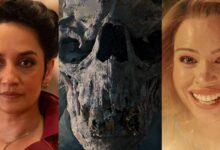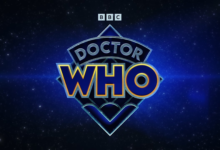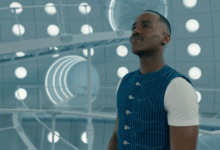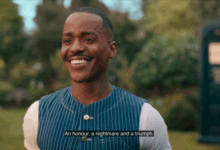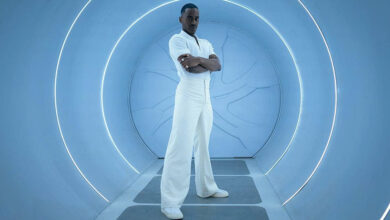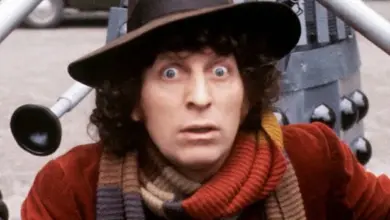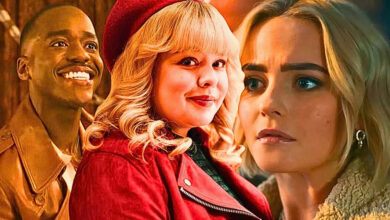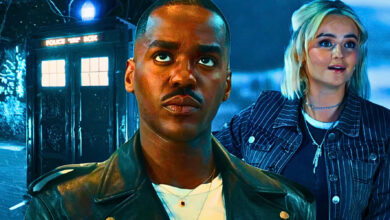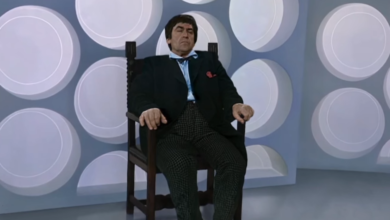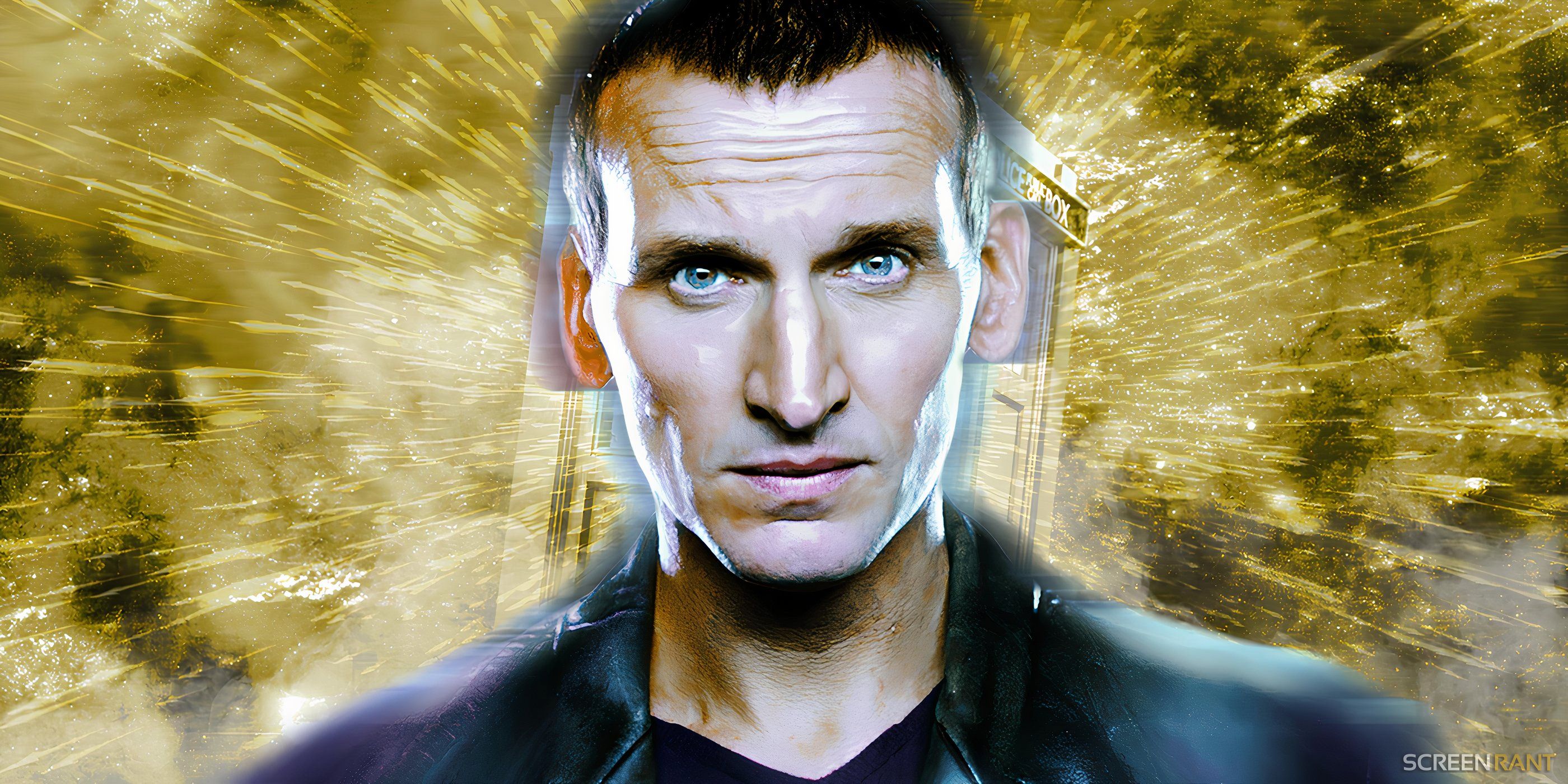
The Ninth Doctor’s timeline originally didn’t make sense in Doctor Who, but later revelations filled the gaps perfectly. In 2005, Doctor Who made its long-awaited return with “Rose” and formally introduced Christopher Eccleston as the latest in a long line of Doctor Who actors. At first glance, it appeared that the Doctor had only just regenerated when the modern show began. Inside Rose’s London home, Nine accidentally glimpsed himself in a mirror and remarked, “Ah, could’ve been worse. Look at me ears!“
The Doctor assessing his own face is a common trope after Doctor Who regenerations, and Nine’s unfamiliarity with his appearance certainly gave the impression that his current body was relatively fresh. Doctor Who‘s anniversary celebrations in 2013 later confirmed that Paul McGann’s Eighth Doctor had regenerated into John Hurt’s War Doctor, then the War Doctor regenerated into Eccleston following the conclusion of the Time War. Nevertheless, it remained unclear whether “Rose” was taking place immediately after Hurt’s regeneration or quite some time after.
The Ninth Doctor Isn’t A New Regeneration When Season 1’s “Rose” Takes Place
“Rose” Wasn’t The Ninth Doctor’s First Rodeo
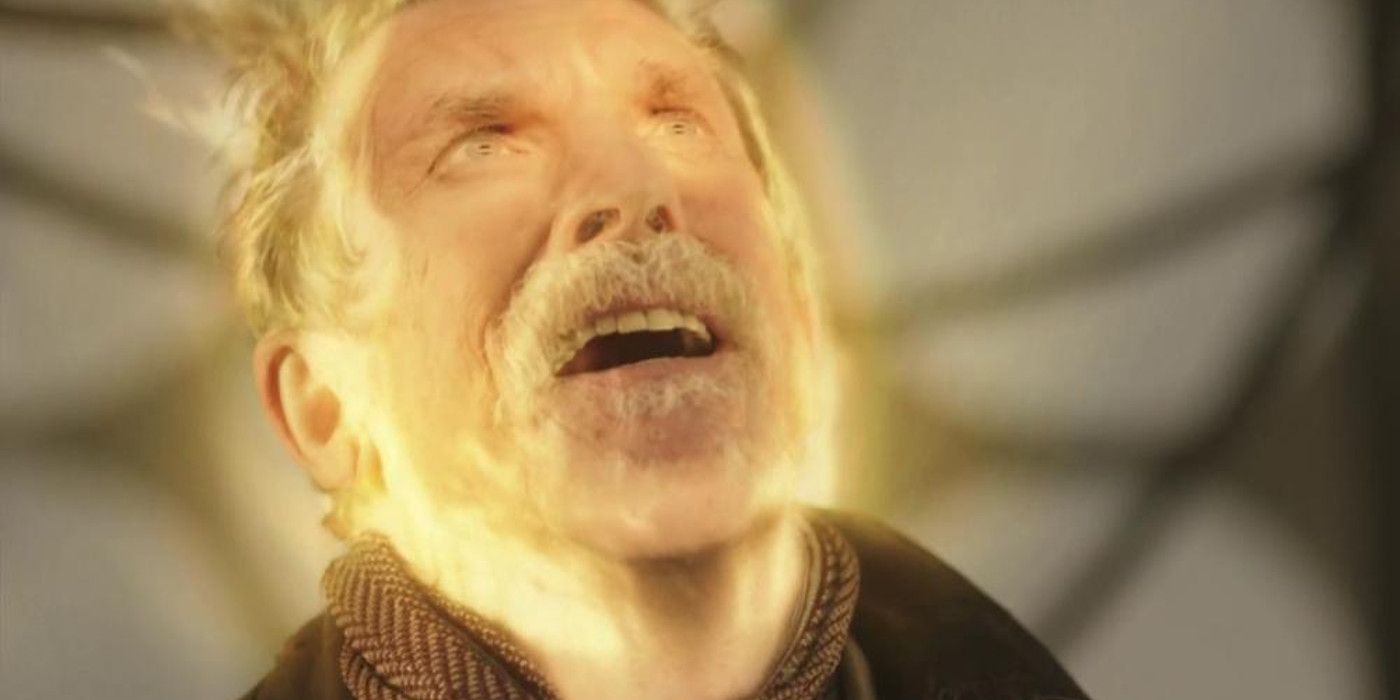
When Rose Tyler visited Clive in Doctor Who season 1’s premiere, the in-universe Whovian showed her images of the Doctor in various different periods – the Titanic’s ill-fated voyage, the eruption of Krakatoa, the Kennedy assassination. All images depicted the Time Lord with Christopher Eccleston’s likeness, suggesting the Ninth Doctor had experienced many adventures prior to “Rose” and the start of modern-era Doctor Who.
Clive’s research was intended to signal the Ninth Doctor was not a brand-new incarnation.
One could argue that Nine simply made a series of brief stops at crucial points in history immediately after regenerating, then finished his whistle stop tour in 2005 London for “Rose,” still very soon after regenerating from the War Doctor. The images Clive showed Rose, however, would only have been a small handful of the Ninth Doctor’s adventures – the ones based on Earth where the Doctor had been captured in a photograph or sketch. Logically, there must have been many excursions on other planets, or where proof of the Doctor’s presence wasn’t available. It simply isn’t possible that Clive managed to document every single one of the Ninth Doctor’s trips pre-season 1.
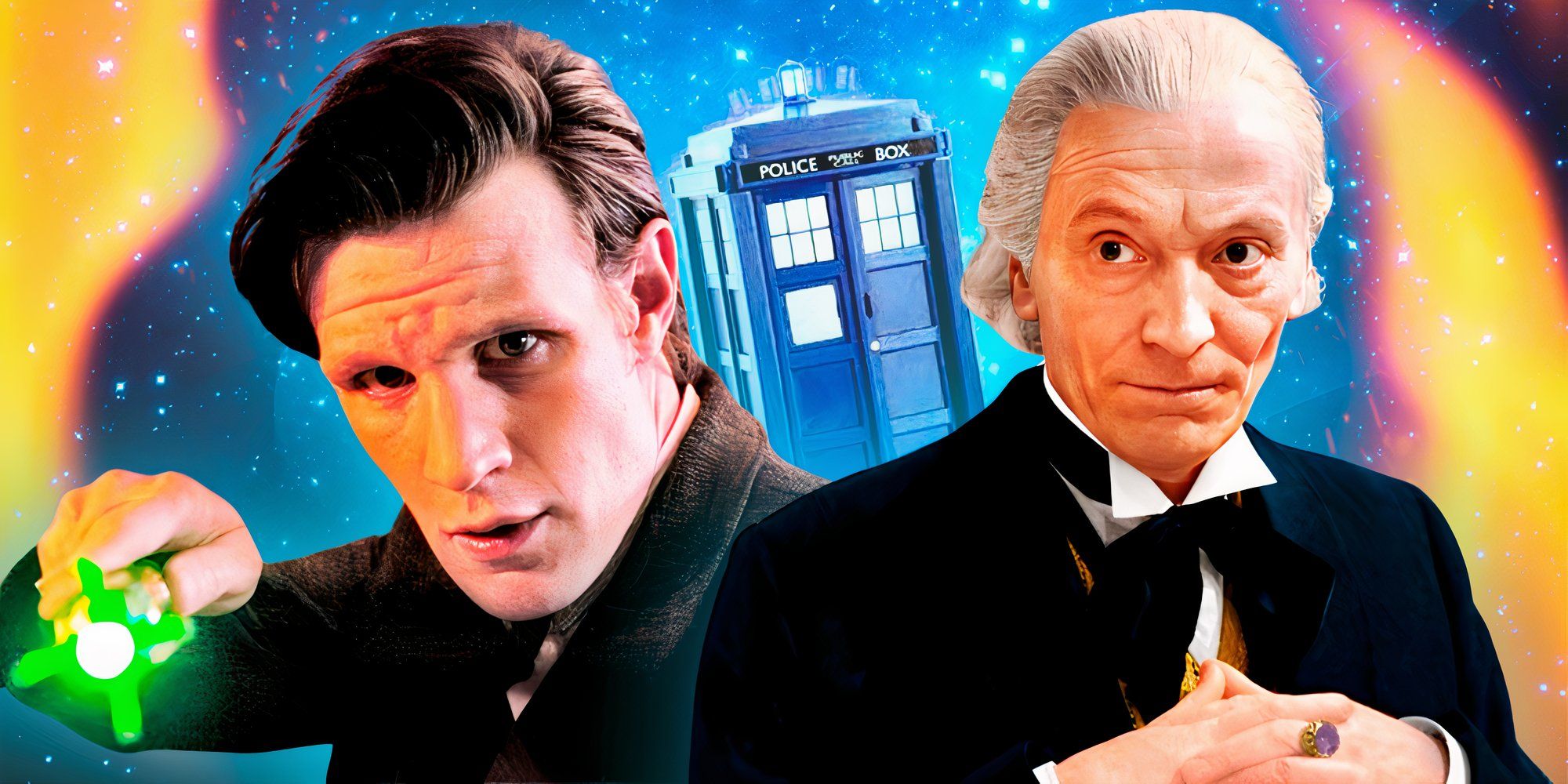
Related
All 17 Doctors In Doctor Who, Ranked Worst To Best
Seventeen different actors have played the Doctor on-screen since the BBC’s sci-fi TV show began in 1963 – and here’s our ranking of them!
Russell T Davies later explained his intention (via Doctor Who Magazine), confirming Clive’s research was intended to signal the Ninth Doctor was not a brand-new incarnation. Davies also pointed to Nine’s assured aura as further evidence.
Why The Ninth Doctor Acted Surprised When He Saw Himself In The Mirror
There Are Only So Many Times A Person Can Be Surprised By Their Own Ears
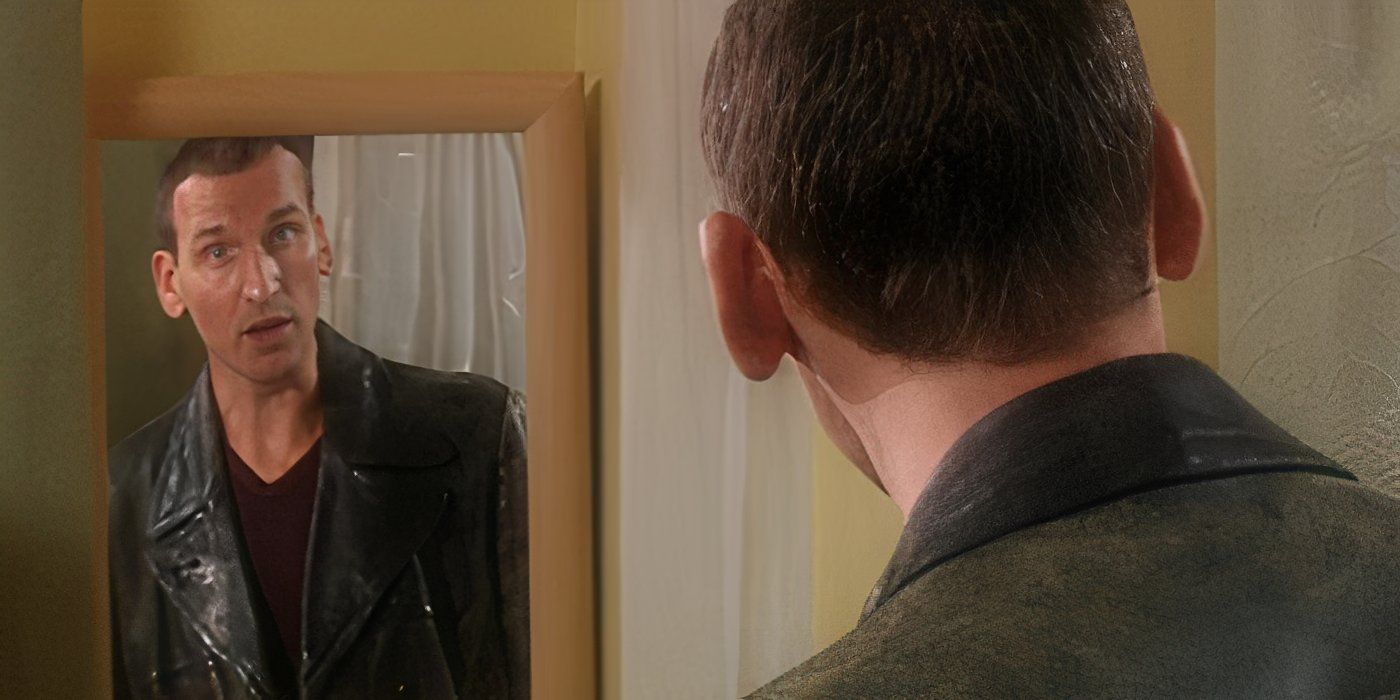
Irrespective of the above, it is odd that Christopher Eccleston was shown judging his appearance in a mirror during “Rose.” The line “could’ve been worse” sounds exactly like what other Doctors have uttered in the moments after regeneration, and Nine acted like he was beholding his ears for the very first time. It’s certainly hard to imagine Peter Capaldi’s Twelfth Doctor, two seasons into his tenure, suddenly realizing his eyebrows are quite angry.
| Doctor | Cause of Regeneration |
|---|---|
| First Doctor (William Hartnell) | Old age |
| Second Doctor (Patrick Troughton) | Time Lord punishment |
| Third Doctor (Jon Pertwee) | Radiation poisoning |
| Fourth Doctor (Tom Baker) | Fall from height |
| Fifth Doctor (Peter Davison) | Poisoning |
| Sixth Doctor (Colin Baker) | The Rani |
| Seventh Doctor (Sylvester McCoy) | Surgery |
| Eighth Doctor (Paul McGann) | Ship crash |
| War Doctor (John Hurt) | Old age |
| Ninth Doctor (Christopher Eccleston) | Absorbing TARDIS energy |
| Tenth Doctor (David Tennant) | Radiation |
| Eleventh Doctor (Matt Smith) | Old age |
| Twelfth Doctor (Peter Capaldi) | Cybermen |
| Thirteenth Doctor (Jodie Whittaker) | Qurunx Beam |
| Fourteenth Doctor (David Tennant) | The Toymaker |
The confusion was finally cleared up as part of Doctor Who‘s 50th anniversary celebrations, albeit not onscreen. In the novelization of “The Day of the Doctor,” written by Steven Moffat, the War Doctor regenerated into the Ninth Doctor, who then smashed every mirror in the TARDIS, refusing to look at himself after the horrors he committed during the Time War. The implication, then, is that the Ninth Doctor existed for some amount of time prior to “Rose,” but deliberately avoided looking at himself during that entire era. “Rose” was the first occasion Nine perceived his own face.
Did Rose Tyler Heal The Doctor After Doctor Who’s Time War?
The Doctor’s Emotional Regeneration Had Started
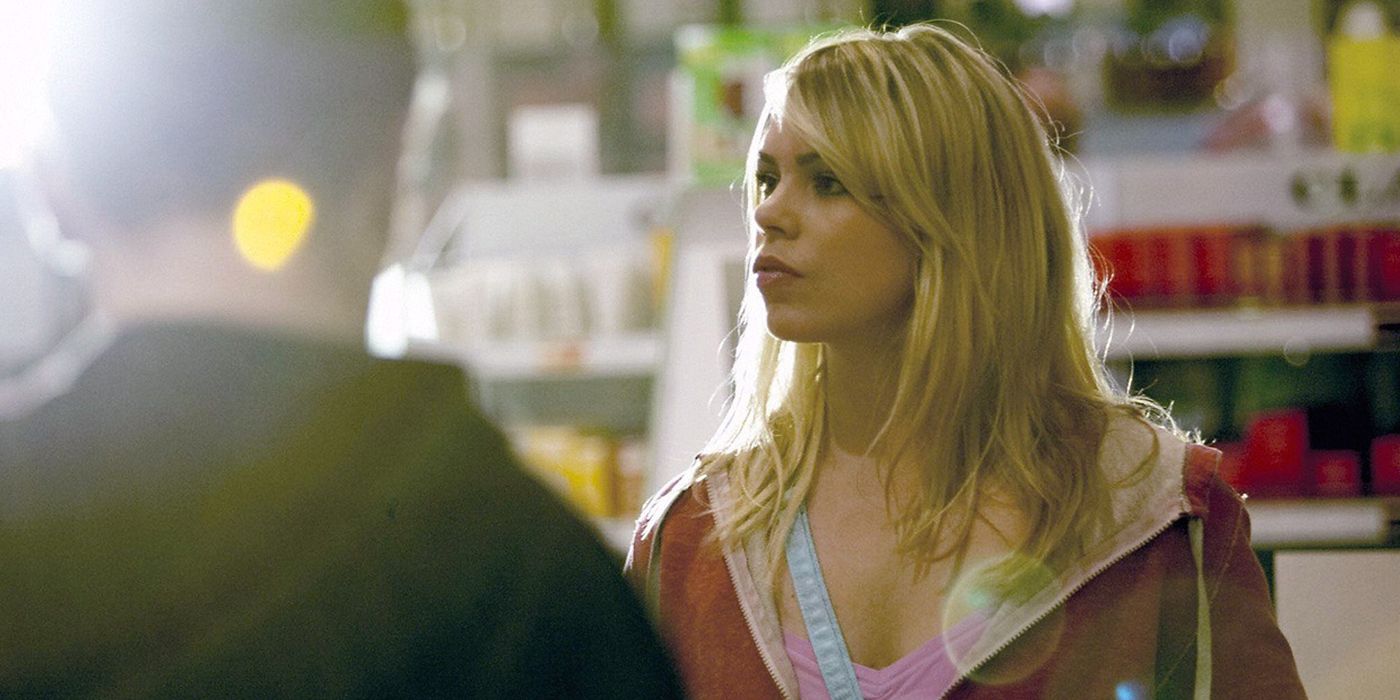
Moffat’s explanation rather neatly resolved any confusion or mystery regarding the Ninth Doctor’s timeline. The logical follow-up question is why, after his mirror-smashing antics post-Time War, the Ninth Doctor quite happily joked about his appearance in the mirror during “Rose.” The Doctor showed no trepidation or reticence at all when seeing himself for the first time since regenerating. Evidently, the Doctor had healed enough to at least look himself in the eye, and it’s possible that Rose herself was the trigger behind that emotional shift.
Rose being the reason the Doctor started recovering from his Time War trauma would make their connection throughout Doctor Who even more meaningful.
Rose and the Doctor barely knew each other at that point in their journey, but their connection and chemistry was immediate. Even during their brief interactions together before the mirror scene, the Doctor was visibly impressed with Rose’s intellect and courage, complimenting her on her deduction skills. Nine was plainly starting to develop that Doctor-companion bond he had presumably avoided since Gallifrey’s destruction. The missing spark of friendship Rose ignited was perhaps all the Doctor needed to face himself after so long.
Rose would, of course, go on to become one of Doctor Who‘s greatest companions, and friendship blossomed into romance after Nine regenerated into Ten. Rose being the reason the Doctor started recovering from his Time War trauma would make their connection throughout Doctor Who even more meaningful, while perhaps also explaining why the Doctor fell in love with her after decades of strictly platonic companion relationships.
